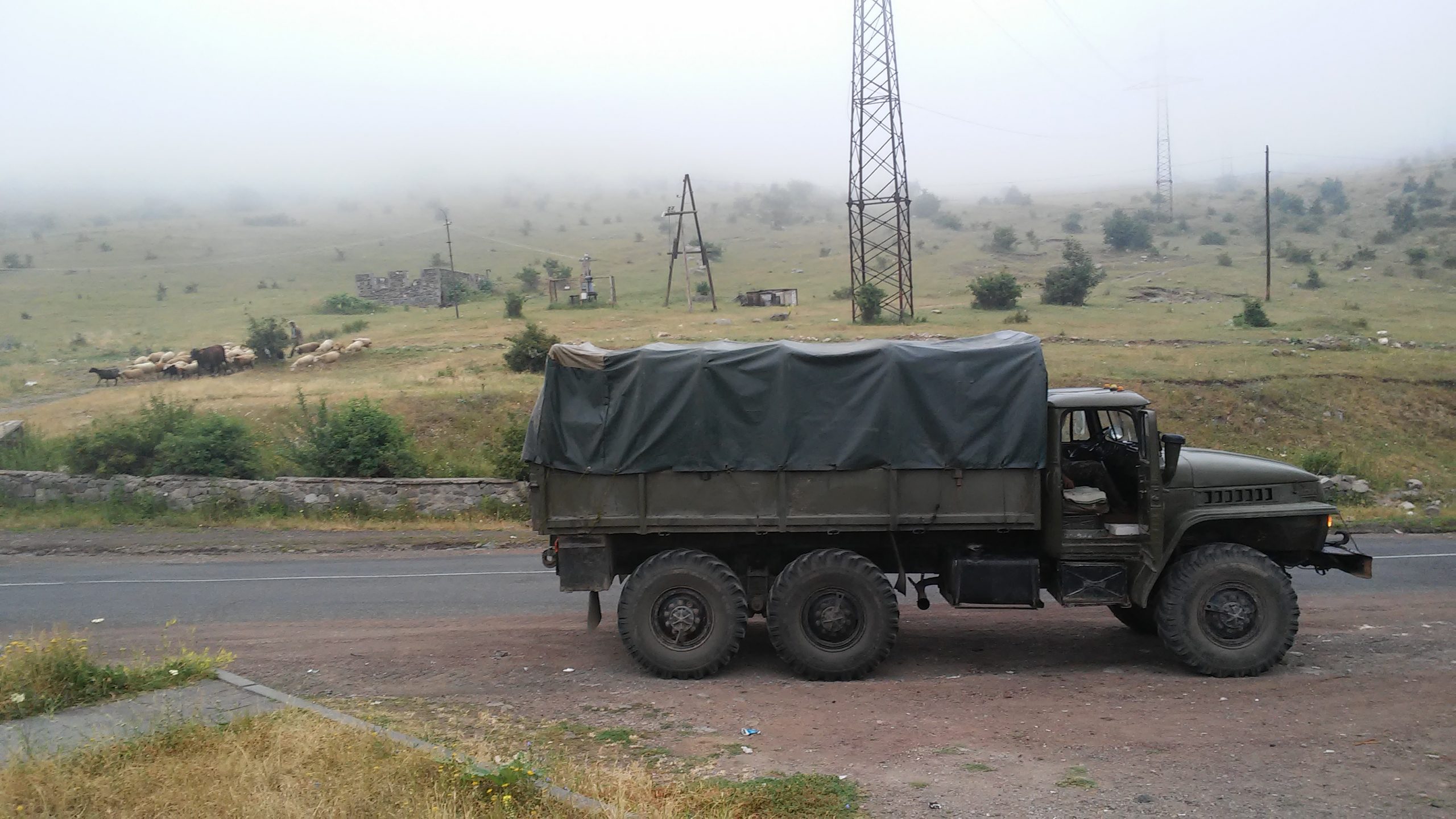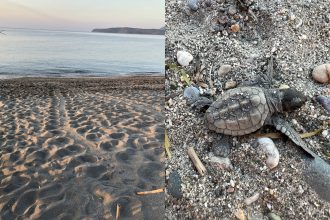The topic of sexual violence is still considered taboo. It is uncomfortable to talk about such crimes, and when someone does, the victim is often blamed. People, who have faced such crimes, carry painful experiences with them throughout their lives, so it is especially difficult to observe the social indifference to the problem. Perhaps you think that only girls in short skirts, allegedly provoking criminals, become victims. Or maybe, like me, you want to know more about young people from Kaunas who have created shocking installations in Kaunas public places and who continue their work on Instagram. Whatever your opinion is at this moment, I invite you to read the interview with Gintarė Žilinskytė, the founder of the WAKEUP project, and raise the issue of sexual violence.
How would you introduce your organization? What are you currently doing, what is your goal?
The WAKEUP project is intended to publicize the problem of sexual violence and support victims. Many women and men carry with them the traumas they experienced because they were denied the right to privacy and personal space. It is barely talked about in Lithuania and no attention is paid to prevention or providing psychological help. The aim of this project is to reach the widest possible audience, raise the issue to the public, and take the initiative to reduce the number of victims and provide the necessary assistance. We are currently going to schools where we give lectures to schoolchildren about sexual violence, we are organizing social campaigns, and working on the WAKEUP clothing line (part of the collected funds will be used for seminars with psychologists). This would be an especially important step because many young people do not have the funds to visit a psychologist, so they could receive professional help in these free seminars.

What was the beginning of WAKEUP? How did you assemble the team?
The articles appearing in the media about the girls, who experienced abuse, not only horrified me but also made me angry. It seemed that no one was doing anything to reduce the number of victims and provide them with the necessary assistance. At that time, I realized that I wasn’t doing anything to change it either. However, I have experienced this myself and I understand how difficult it is when this problem is ignored. I mentioned to my friends from university that I would like to take the initiative on this topic. I got a lot of support, everyone wanted to contribute – that’s how we got the team together. We complement each other in the team because everyone has different skills.
You exhibited installations aimed at drawing attention to the problem of sexual violence in the center of Kaunas. What was the reaction of Kaunas residents?
We were very happy to receive the interest of passers-by. There were people who stopped and asked what was happening, and others shared photos on social media, thus contributing to publicizing the problem. There have also been some wonderful, inspiring articles in the media. Of course, there were people who did not understand what the mannequins represented. They thought that mannequins were for rapists and that it wouldn’t stop them. However, the mannequins were intended for every passer-by, every dad or mom who still thinks that this problem is not relevant because it supposedly only happens deep in the countryside or only to those girls who wear short dresses. Sexual violence is experienced at any age, in most cases in childhood, and often in a close environment – that is exactly what we wanted to bring to people’s attention.
I saw on Instagram that one of your performances on Laisvės Avenue was interrupted by the police. Can you tell me more? Is it difficult to develop a culture of activism in Lithuania?
There were a lot of foreigners in the city that day because of the basketball competition. As we understood from the police’s reaction, they simply didn’t want foreigners to think that Lithuanians were unhappy with something, and that’s why they asked us to leave. Police intimidation may contribute to the fact that few are willing to take the initiative. Our project is not aimed at people who already know about the problem of sexual violence. We need to continue to address this topic and we should not give in to calls to end it all.

You organize special classes in schools. What kind of reactions do you get from students? Are they different from the attitudes of people of other generations?
I noticed that the younger students, 5th, or 6th graders, listen very attentively, they have a lot of questions on this topic. According to some adults, it is not yet time for children to hear about such things, but the students were very interested. The older students (grades 11 – 12) think they know everything, they even find it a little funny, but I think they still understand why this is an important topic. Adults listen with horror because they are the people who do not know the relevance of this problem. Although the reactions varied, the most important thing was that the students themselves wanted to get involved, invite us, and delve into this topic.
You have an online platform where you share the stories of victims of sexual violence. How much attention is this initiative getting, are people willing to send their stories to you?
We established this platform at the beginning of the project. At that time, we did not have a wide audience yet, but we received a lot of interest in the first three weeks – over 60 stories were sent to us. We were glad that people were not afraid to tell about their experiences, but the number is frightening, it is experienced by a lot of people.
Do you think that too little attention is paid to crimes of sexual violence in Lithuania?
Absolutely. People who contact law enforcement are either ignored, as some victims have written in anonymous story forms, or an article appears in the media and then perhaps the perpetrator is punished. And what about those who don’t have the courage or ability to contact the police? Why is a safe space not provided and actively offered to talk about what you experienced? Finally, why is there so little prevention and psychological support? A very big gap in education. When I came to the schools, I found that the students had no lessons or discussions on this topic.

Where do you get the motivation to continue working on such an emotionally difficult subject?
I often get the question “How are you not afraid?” I’m afraid, everything is new to me, I’m still young and I’m just starting to work on these topics. It’s really hard and scary, but when you know you’re working for others and not for yourself, the motivation increases. When I see that I help at least one person, I want to continue working and help one more. When people come and unburden their hearts and then thank you – that becomes the biggest driving force. Of course, team support is also very important.
How can we contribute to solving this problem?
It is very important to familiarize yourself with the definition of sexual violence, to know what the consequences are, how not to become a perpetrator, and how to help the victims. Only by understanding the relevance of this problem can we make changes in society. Of course, everyone can contribute to publicity: share posts or your experiences. And most importantly, everyone can support the victims, try to understand them, and not judge them.




